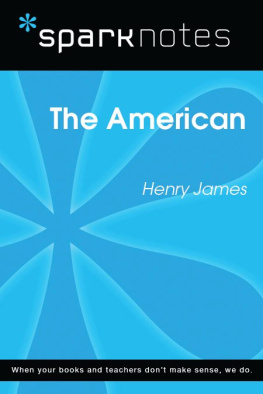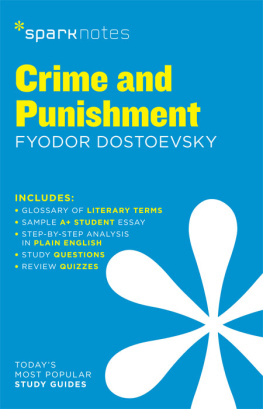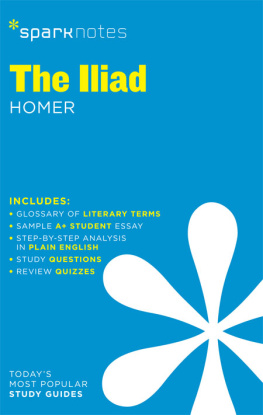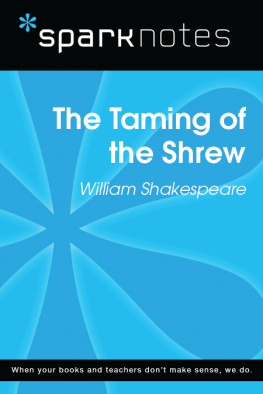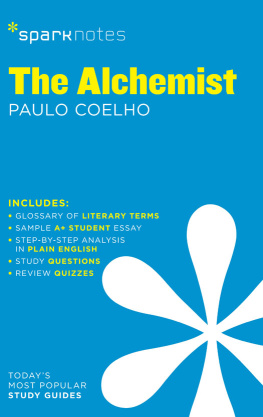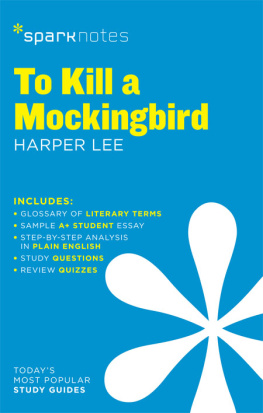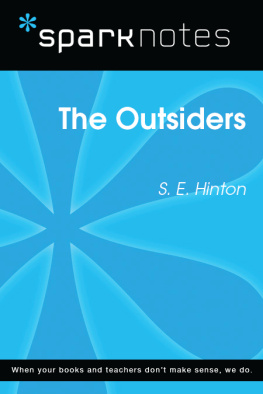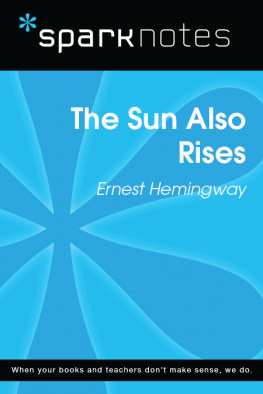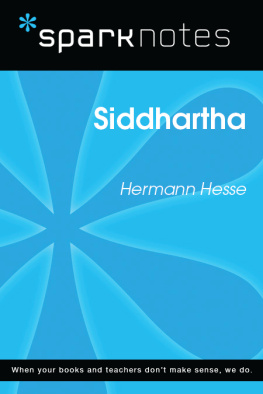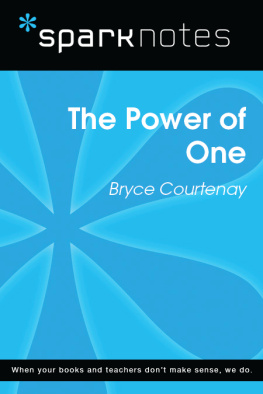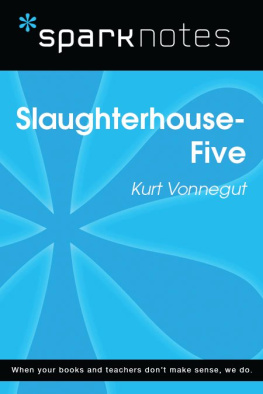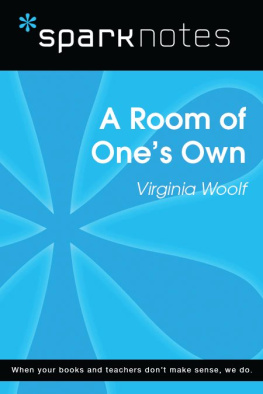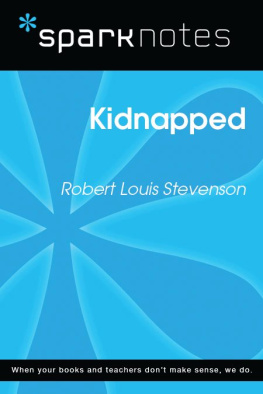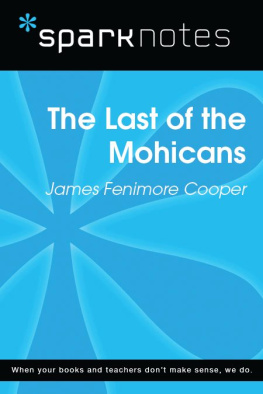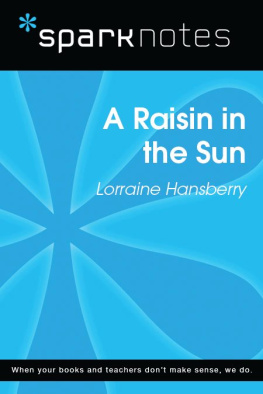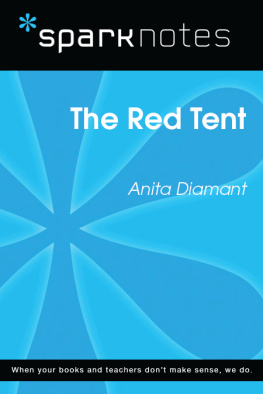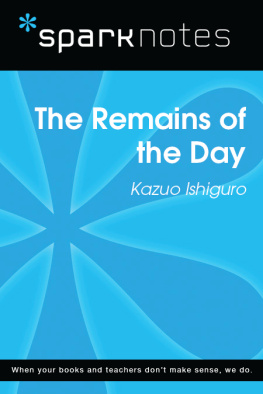The American
Henry James
2003, 2007 by Spark Publishing
This Spark Publishing edition 2014 by SparkNotes LLC, an Affiliate of Barnes & Noble
All rights reserved. No part of this publication may be reproduced, stored in a retrieval system, or transmitted in any form or by any means (including electronic, mechanical, photocopying, recording, or otherwise) without prior written permission from the publisher.
Sparknotes is a registered trademark of SparkNotes LLC
Spark Publishing
A Division of Barnes & Noble
120 Fifth Avenue
New York, NY 10011
www.sparknotes.com /
ISBN-13: 978-1-4114-7208-2
Please submit changes or report errors to www.sparknotes.com/.
10 9 8 7 6 5 4 3 2 1
Context
Henry James was born in April 1843 in New York City to a cosmopolitan, upper-class East Coast family. His grandfather's business ventures had left the family with money and status, freed from the pressures of regular work. The family traveled extensively in Europe during James's youth, going most often to Paris, London, and Geneva. For the most part, James and his siblingswho included the illustrious pragmatist William and diarist Alicewere privately tutored. At nineteen, James briefly attended Harvard Law School before deciding to devote himself to writing. From 1869 on, James lived and wrote almost entirely in Europe, supporting himself by contributing short stories, reviews and serial novels to such American mainstays as the Atlantic Monthly, the Nation, and the New York Tribune. James wrote The American during a year-long stay in Paris (1875-1876), after which he moved to London. James lived in England for the rest of his life, first in London and subsequently in Rye, becoming a British subject in 1915 in part to protest America's failure to support the British in World War I. James died in February 1916.
The American, one of James's earliest important works, first appeared as a serial novel in the Atlantic Monthly, running in twelve installments from June 1876 to May 1877. It was James's third serialized novel, following Watch and Ward (1870) and Roderick Hudson (1875). James substantially revised the text in 1907 for publication by Scribner & Sons, New York; this later version is now standard. Thus, The American is a curious mixture of early and late James which, if not as consistently fine as his later works, clearly reflects his rare mastery of grace, gesture and form. James would later continue The American's thematic exploration of a the collision of the New World and Europe, most notably in Portrait of a Lady (1882), The Wings of the Dove (1902), The Ambassadors (1903), and The Golden Bowl (1904).
James's writing in general, and The American in particular, is notable for its high and eloquent style, gorgeous prose, carefully crafted narrative, and substantial attention to detail. Though written serially, The American is nonetheless full of the parallelism, prophesy, foreshadowing, structural symmetry and dj vu one might expect from a traditionally written novel. The substantial revisions of the 1907 edition focused mainly on individual phrases and words, leaving plot details entirely intact. Even some thirty years later, when an older and more pragmatic James admitted the Bellegardes might very well have accepted his hero's money, the love whose tragic end scandalized Atlantic readers refused the cheap satisfaction of a happy ending. Then, as now, the book's great triumph remains its sympathetic and intricate character study against the clear backdrop of tragedy. The novel gives voice not only to James's analyses of his characters, but to their feelings, praise, encouragement and condemnation of each other. Ultimately, having fostered dependence, the novel considers its characters in their fellows' absence. Broad themes of cross-cultural encounter, of love and marriage, of betrayal and friendship are negotiated on the difficult and particular level of individual characters. The characters at once transcend stereotype, embody it, and give it life. The novel, like the Louvre of its opening scenes, is not to be hurried through for fear of an aesthetic headache. Much of its rarity and beauty are hidden in turns of phrase and subtle wit, in characters' dreams against evidence of desolation, in the odd unconscious smile and the lingering glance.
Plot Overview
On a lovely day in May, 1868, Christopher Newman, a wealthy American businessman, sits down in the Louvre with an aesthetic headache, having seen too many paintings. A young Parisian copyist, Nomie Nioche, catches his eye, and he agrees to buy the painting she is working on for the extravagant price of 2,000 francs.
Shortly thereafter, Newman recognizes Tom Tristram, an old friend from the Civil War, wandering the gallery. Newman explains that he has made quite a fortune and now, having realized the inanity of seeking competitive revenge on his fellow businessmen, has decided to move to Europe to enjoy his wealth.
Over dinner, Newman admits to the Tristrams that he has come to Europe to find a wife to complete his fortune. Mrs. Tristram suggests Claire de Cintr, the beautiful and widowed daughter of an impossibly aristocratic family, the Bellegardes. Several days later, Newman stops by the Tristram house only to find the visiting Claire, who politely invites him to call on her. When Newman stops by the Bellegarde home, a pleasant young man promises to go get Claire, but is checked by an imposing older figure who claims she is not at home.
Shortly thereafter, M. Nioche, Nomie's father, appears at Newman's hotel with his daughter's heavily varnished and framed picture. When the timid, bankrupt Nioche admits his fear that his beautiful daughter will come to a bad end, Newman offers to let her earn a modest dowry by painting. When he meets Nomie in the Louvre to commission the paintings, however, she tells him bluntly that she cannot paint and will only marry if she can do so very well.
Mrs. Tristram encourages Newman to spend the summer traveling, promising that Claire will wait for his return. Newman spends a wonderful summer exploring ruins, monuments, cathedrals, and the countryside with his usual enthusiasm. On his return to Paris in the fall, Newman calls on Claire and finds her at home with her brother Valentin, the pleasant young man he met on the first visit. Newman is deeply drawn to Claire's presence, her peace, and her intense yet mild eyes.
About a week later, Valentin calls on Newman at home. The two talk late into the night and soon become fast friends. Valentin explains to Newman that Claire was married at eighteen, against her will, to the disagreeable old Count de Cintr. Valentin tried to stop the wedding, but his mother, the Marquise and his brother, Urbainthe imposing older figure who barred Newman's first visitcoveted the Count's pedigree and fortune. When the Count died and his questionable business practices were exposed, Claire was so horrified that she withdrew her claim to his money. The Marquise and Urbain allowed this withdrawal on the condition that Claire obey them completely for ten years on every issue but marriage.
Newman tells Valentin that he would like to marry Claire. Valentin promises to help Newman's cause, out of both friendship and a spirit of mischief. The following day, Newman calls on Claire and finds her alone. He frankly details his love, his assets, and his desire to marry her. Fascinated but hesitant, Claire tells him she has decided not to marry, but agrees to get to know him if he promises not to speak of marriage for six months.

